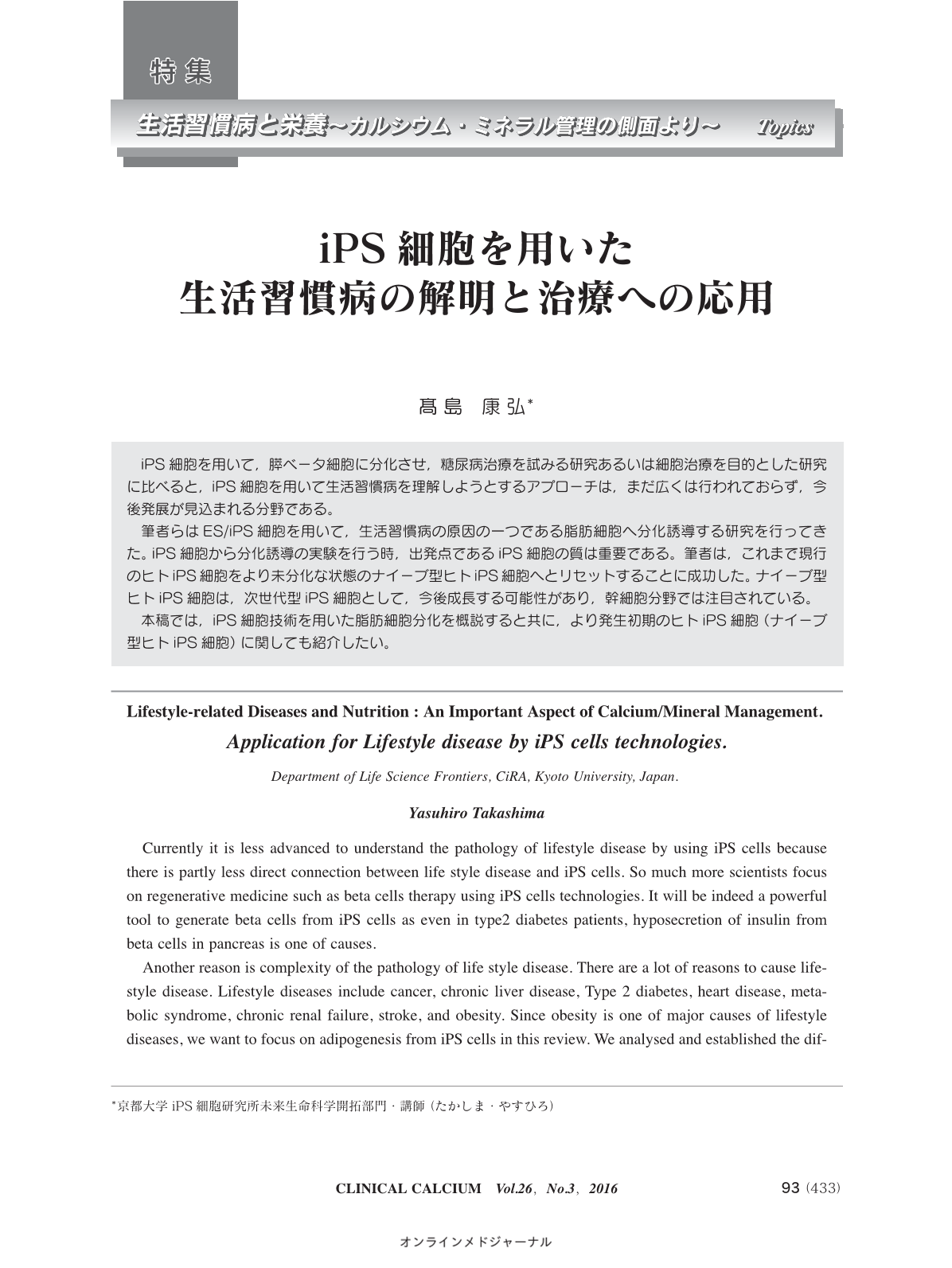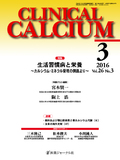Japanese
English
- 有料閲覧
- Abstract 文献概要
- 1ページ目 Look Inside
- 参考文献 Reference
iPS細胞を用いて,膵ベータ細胞に分化させ,糖尿病治療を試みる研究あるいは細胞治療を目的とした研究に比べると,iPS細胞を用いて生活習慣病を理解しようとするアプローチは,まだ広くは行われておらず,今後発展が見込まれる分野である。 筆者らはES/iPS細胞を用いて,生活習慣病の原因の一つである脂肪細胞へ分化誘導する研究を行ってきた。iPS細胞から分化誘導の実験を行う時,出発点であるiPS細胞の質は重要である。筆者は,これまで現行のヒトiPS細胞をより未分化な状態のナイーブ型ヒトiPS細胞へとリセットすることに成功した。ナイーブ型ヒトiPS細胞は,次世代型iPS細胞として,今後成長する可能性があり,幹細胞分野では注目されている。 本稿では,iPS細胞技術を用いた脂肪細胞分化を概説すると共に,より発生初期のヒトiPS細胞(ナイーブ型ヒトiPS細胞)に関しても紹介したい。
Currently it is less advanced to understand the pathology of lifestyle disease by using iPS cells because there is partly less direct connection between life style disease and iPS cells. So much more scientists focus on regenerative medicine such as beta cells therapy using iPS cells technologies. It will be indeed a powerful tool to generate beta cells from iPS cells as even in type2 diabetes patients, hyposecretion of insulin from beta cells in pancreas is one of causes. Another reason is complexity of the pathology of life style disease. There are a lot of reasons to cause lifestyle disease. Lifestyle diseases include cancer, chronic liver disease, Type 2 diabetes, heart disease, metabolic syndrome, chronic renal failure, stroke, and obesity. Since obesity is one of major causes of lifestyle diseases, we want to focus on adipogenesis from iPS cells in this review. We analysed and established the differentiation protocol into adipocytes from mouse ES cells and human iPS cells. The other point in this review is the starting pluripotent cells for differentiation. Quality of pluripotent stem cells are one of most critical factors to succeed in getting well-differentiated cells. Recently, we have developed new naïve human pluripotent stem cells(PSC),“Reset cells”. Naïve PSC have more similar to human epibast cells than conventional human PSC. They will be more ideal cells for differentiation because of their hypomethylated status and earlier stage of development.



